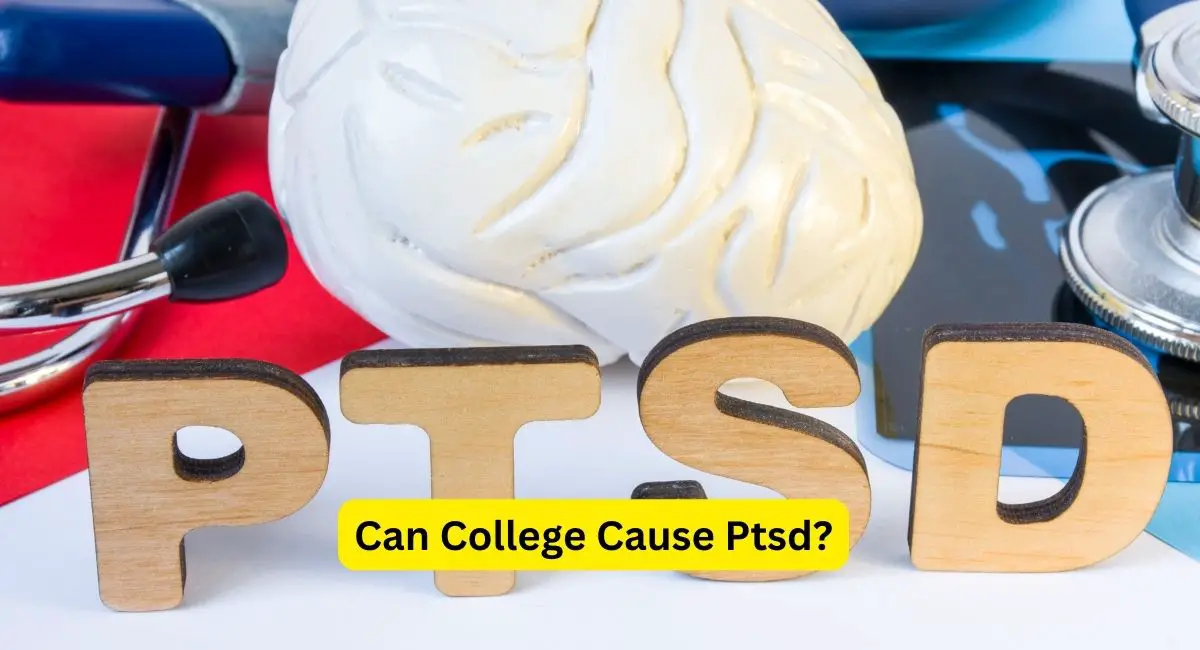Yes, college can cause PTSD in some individuals who experience traumatic events during their college years. Stressful academic environments and social pressures may contribute to its development.
Navigating the complexities of college life presents a significant challenge for many students. From the pressure to perform academically to the social demands and potential exposure to trauma, college can be a high-stress environment. This dynamic sometimes triggers or exacerbates mental health issues, including Post-Traumatic Stress Disorder (PTSD).
The disorder develops after a person has experienced or witnessed a terrifying event, and the diverse college experience can, unfortunately, include such incidents. Consequently, students may find themselves grappling with symptoms like flashbacks, severe anxiety, and uncontrollable thoughts about their trauma. Recognizing these risks, it’s essential to foster a supportive and understanding campus culture that prioritizes mental health and provides necessary resources for students in need.

Credit: news.wttw.com
The Stressful Nature Of College Life
College life often brings intense academic pressures. Students strive to meet high expectations. Grades feel like everything. This quest for success can be exhausting.
Feeling alone or misunderstood adds to the stress. Social challenges are common in college. Friends might be hard to find. In large schools, one can feel just like a number.
Identifying Ptsd Symptoms In Students
Many students may show changes in their emotions and behaviors due to PTSD. These changes often include feeling scared or nervous without a clear reason. It’s common for their interests and happiness in activities to decrease. Sometimes, they might seem angry or irritated more than usual.
Sudden outbursts can occur, even over small matters. Watch for signs of trouble focusing in class or during homework. A drop in school performance could be a warning sign. These students might also avoid friends and family, choosing to be alone.
| Symptom | Physical Sign |
|---|---|
| Increased heart rate | Heart beats fast unexpectedly |
| Sweating | Hands or body sweats a lot |
| Trembling | Hands or body shakes |
| Being easily startled | Jumps at sudden sounds |
Traumatic Events On Campus
College campuses sometimes see violent events that deeply affect students. Assaults and accidents can lead to lasting trauma. Victims may struggle with anxiety, depression, and PTSD symptoms. Support from friends and therapy are vital.
Sexual assault is a serious issue in many colleges. Survivors often feel alone and scared. Rebuilding a sense of safety is key. Trust is hard to regain. Many schools offer counseling services to help.
Support Systems And Resources Available
Mental health support is key for college students. Many colleges offer counseling centers. Students can talk to trained therapists there. Therapy sessions and stress management workshops can help a lot.
Colleges also have peer support groups. These groups let students share experiences. They are not alone. It is good to talk with friends who understand. Student organizations focus on mental wellness too. They create a community of care. This makes students feel safe and supported.
Strategies For Prevention And Coping
Creating a safe campus environment is essential for student well-being. Universities must foster spaces where students feel secure and supported. This involves implementing strict anti-bullying policies and offering mental health resources. Regular safety drills and clear reporting channels can also make a big difference.
Self-care and resilience-building techniques are crucial for students. It’s important to encourage regular exercise and healthy eating habits. Stress management workshops can equip students with coping skills. Time management seminars may help students juggle academic and social demands. Ensuring adequate sleep is also vital for mental health.
:max_bytes(150000):strip_icc()/dsm-5-ptsd-criteria-for-children-2797288_FINAL-5c12bf47c9e77c0001041bac.png)
Credit: www.verywellmind.com
Navigating Recovery And Academia
Students grappling with PTSD may find solace in structured accommodations offered by their institutions. Academic settings often provide tailored support to align with individuals’ unique needs. This includes extensions on assignments, reduced course loads, and alternative testing environments. Such measures aim to create a safe and conducive learning atmosphere for recovery.
Balancing treatment and studies can be daunting. Initiatives like counseling, therapy sessions, and peer support can be integrated into student schedules. Open communication with faculty about one’s challenges is crucial. It ensures a collective effort in facilitating a balanced path toward both academic success and mental well-being.

Credit: www.facebook.com
Frequently Asked Questions For Can College Cause Ptsd
How Common Is Ptsd In College Students?
PTSD affects approximately 9% of college students, a rate higher than the general population. Stress from academics and past traumas contribute to this prevalence.
What Are The 7 Symptoms Of Ptsd?
The seven symptoms of PTSD include flashbacks, avoidance of reminders, negative thoughts, mood changes, hyperarousal, difficulty sleeping, and concentration problems.
Is Academic Trauma A Thing?
Yes, academic trauma is a recognized issue. It refers to the emotional distress experienced due to academic failures or pressures. Students affected may require support to overcome associated stress and anxiety.
What Does A Ptsd Episode Look Like?
A PTSD episode often involves flashbacks, intense distress, physical reactions like shaking, and avoidance behavior. Emotional numbness and irritability can also occur during these episodes.
Conclusion
The link between college experiences and PTSD is complex. Support systems and early intervention can mitigate risks. It’s vital for students to seek help if symptoms arise. Education on mental health must be a priority. Remember, healing is possible with the right resources and understanding.

